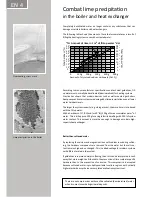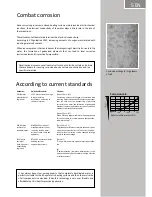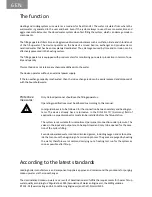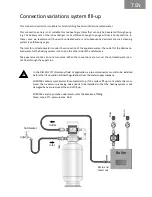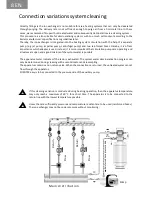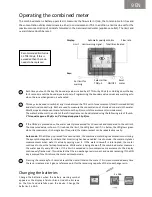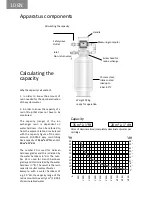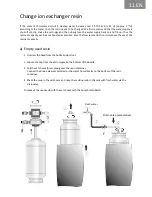
Combat corrosion
According to current standards
Desalination also removes all neutral salts such as chloride, sulfate and nitrate
that are known for causing corrosion above a certain concentration and in a
specific interaction.
It has always been clear among experts that completely desalinated water is
perfectly suitable for the fill-up water in heating systems and thus, the service life
of all components is extended. Today this technology is very user-friendly and
affordable that it is ideal for practical application.
Since corrosion processes in closed heating systems mainly involve electrochemical
reactions, the electrical conductivity of the water plays a direct role in the rate of
these reactions.
The salt content of the water determines the electrical conductivity.
According to VDI guideline 2035, increasing amounts of oxygen are tolerated with
reducing water salt content.
When ions are present that can take over the transporting of electrical currents in the
water, the formation of galvanised elements that can lead to local corrosion
(corrosion elements) is practically impossible.
[Sheet 2, Para. 8.5.]
"Increasing amounts of oxygen are tolerated with
reducing water salt content. When ions are present
that can take over the transporting of electrical
currents in the water, the formation of galvanised
elements that can lead to local corrosion (corrosion
elements) is practically impossible."
[Sheet 2, Para. 8.5.]
When filling up larger warm water heating systems
for the first time, it is recommended that desalina-
ted water is used [...]
[Part 3, Para. 7.2]
Chloride and sulfate ions stimulate the anodic parti-
al reaction of metal corrosion. The corrosion proba-
bility for local corrosion can be reduced through
selective anion exchange.
[Para. 4 ff]
"Fill-up water and make-up water must be desalina-
ted."
[d]
"Demineralisation (complete desalination) is the
best technical solution for water with high chloride
or sulfate content."
2035, Prevention of damage
in water heating
installations, corrosion in
the water system.
DIN 50930 Corrosion of
metallic materials under
corrosion load by water
inside of tubes, tanks and
apparatus
BT102-01, Water quality for
building services
engineering systems
VDI (German
Associations of
Engineers)
DIN German
Institute for
Standardisation
SWKI Swiss
Society of
Heating and Air
Conditioning
Engineers
Authority:
Guideline/Standard:
Citation:
Corrosion rate
Salinity in the water
Corrosion pittings for high levels
of salt
5 EN




